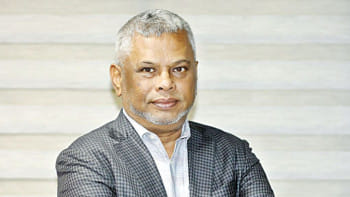Tests ramped up, but still not enough


With multiple coronavirus testing facilities now detecting more cases, experts feel even more people from every region need to be tested immediately.
In the 24 hours before yesterday morning, the authorities tested 434 people and confirmed nine Covid-19 cases, the highest in a single day in the country. The previous day, the authorities reported five cases after 203 tests.
Experts recommend conducting more tests of symptomatic as well as asymptomatic individuals with and without travel history from every region of the country.
That is how the level of spread could be measured more correctly, they add.
Since January 28, the Institute of Epidemiology, Disease Control and Research (IEDCR) reported 70 positive cases after 2,547 tests.
"People are volunteering for the tests, mainly by contacting officials over phone. This is a passive survey, not an active one," Prof Nazrul Islam, virologist and former vice-chancellor of Bangabandhu Sheikh Mujib Medical University told The Daily Star.
The number of phone calls and the number of tests in a day prove that "things are not being done correctly", he said.
"They received 70,000 calls [yesterday], but tested very few," Prof Nazrul said.
He said people who get tested should be selected in a planned manner so that the data can represent the entire country.
Of the latest 434 tests, the IEDCR conducted 136 and found 8 positive, and rest 13 laboratories across the country found one positive. Of the 13 laboratories, eight are in the capital and five outside.
LABORATORY CAPACITIES
Real-Time Polymerase Chain Reaction (RT-PCR) test has proven to be the most dependable method of diagnosing Covid-19.
Invented in 1983 by the American biochemist Kary Mullis, the test involves a sophisticated procedure requiring trained personnel for collecting and transporting samples, and doing the examinations and analyses, experts said.
Rigorous tests have paved the way for controlling the Covid-19 outbreak in several countries.
Experts said maintaining the standard of tests is a challenge.
According to officials, the government is working to increase the number of tests by next week.
Of the 14 testing facilities, different laboratories have different capabilities.
"The laboratories are capable of conducting a total of around 5,000 Covid-19 tests every day," Prof Dr Khondoker Mahbuba Jamil, virologist at the Institute of Public Health told The Daily Star yesterday.
To collect samples from suspected Covid-19 patients in every upazila, the Directorate General of Health Services has assigned sample collectors and trained them. Employees of Surveillance and Immunization medical Officers Network (SIMO) and medical technologists in the upazila health complexes do the job.
Personal protective equipment (PPE) have been supplied to them, according to officials.
THE CHALLENGES
If anybody wants to be tested, the only way to reach the authorities is to make phone calls to the hotline numbers of the IEDCR and the Directorate General of Health Services (DGHS).
In the 24 hours until 10:00am yesterday, the IEDCR's 17 employees received 3,089 calls while DGHS's 2,118 and volunteering doctors received 63,714.
Of them, only 553 were suspected as potential Covid-19 patients.
Many people complained of failing to reach the IEDCR timely.


 For all latest news, follow The Daily Star's Google News channel.
For all latest news, follow The Daily Star's Google News channel. 



Comments